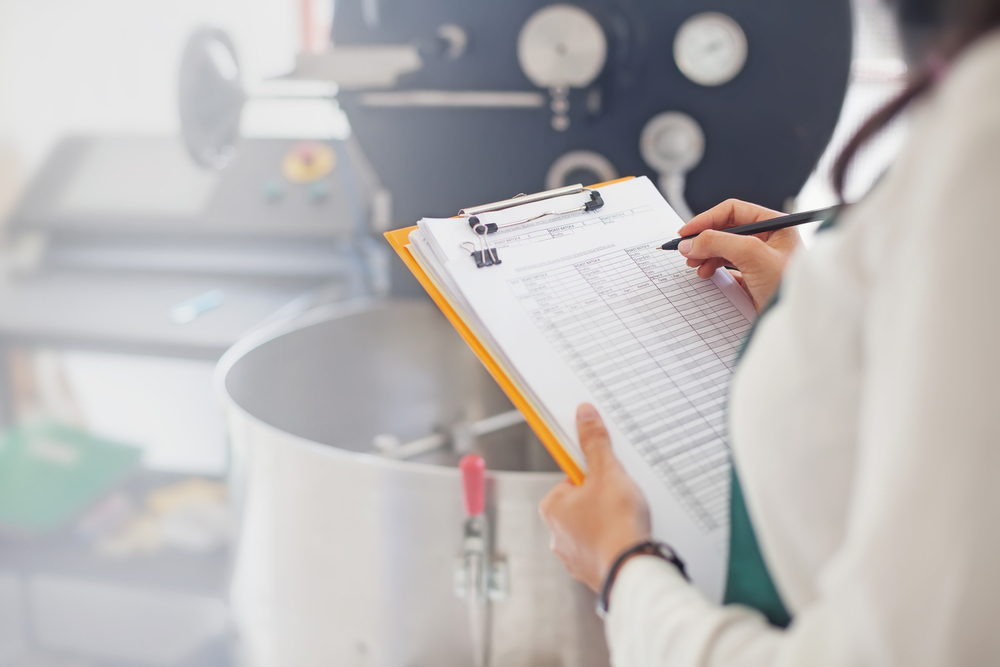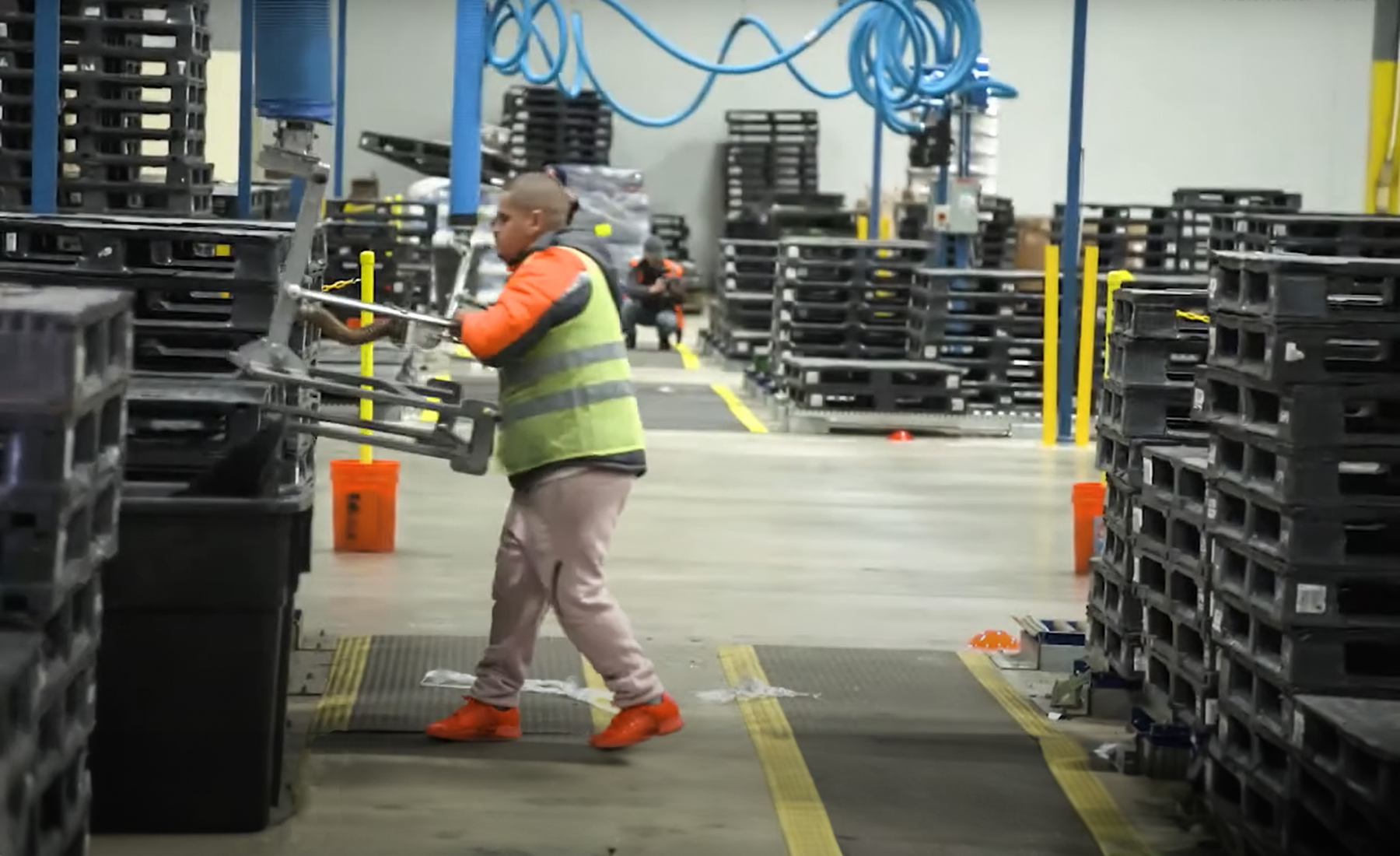Recently, the risk of contamination in the food supply chain was underlined when Tyson Foods recalled more than 36,000 pounds of chicken nuggets due to potential rubber contamination. While no one was hurt and only a few people reported finding small pieces of blue rubber in the packages of nuggets, the recall still cost Tyson Foods time, money, and loss of reputation among consumers. Unfortunately, food contamination isn’t uncommon when products are prepared and shipped in bulk, but there are ways to minimize it.
The causes of food supply chain challenges often seem innocuous. For example, something as common as a wood pallet can splinter or break down during shipping and contaminate food. By the time that happens, it’s usually too late to tell where the contamination occurred in the supply chain. As a result, thousands of pounds of food would need to be disposed of. Yet, because contamination generally arises from specific sources that can often be traced to stages in the food supply chain, one simple process or equipment change can often make a big difference, ultimately preventing foreign material contamination in foods.
Pinpointing the Causes of Foreign Material Contamination
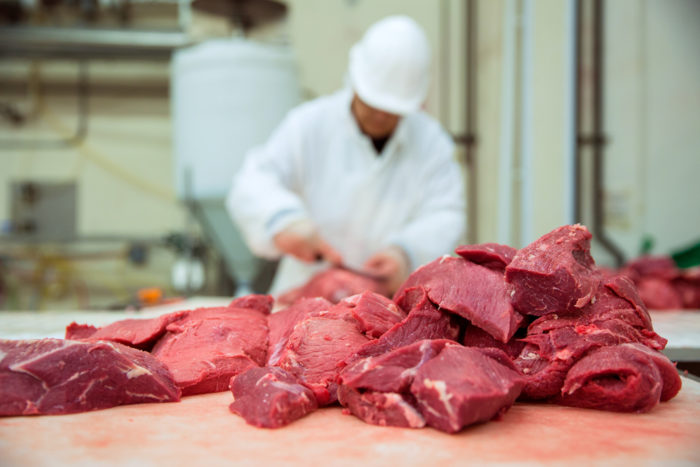 On finding foreign material contamination, manufacturers must do a thorough–and often expensive–audit of their processes to discover the cause of the issue. Food contamination generally comes from one of five sources.
On finding foreign material contamination, manufacturers must do a thorough–and often expensive–audit of their processes to discover the cause of the issue. Food contamination generally comes from one of five sources.
- The Field: Harvesters and other farming equipment may pull up dirt, stones, and even small animals during raw material collection. Typically, protocols are in place to remove this debris, but they’re not foolproof.
- Processing: During processing, inedible materials like bone may make it into the product. Debris from processing machinery, like bolts, screws, and tiny shards of metal, can also contaminate food during this step.
- Distribution: As food moves from the producer into storage and to the retailer, debris from equipment can find its way into food packaging. Insect infestations are also of concern as some insects can chew through a sealed container and ruin entire shipments.
- Intentional: In some cases, employees may contaminate food on purpose. This issue may go undetected as most manufacturers would rather believe they don’t have anyone on staff capable of such actions. Prevention is a matter of strict employee oversight and security processes.
- Miscellaneous: This category holds any contamination that doesn’t fit into the other four groupings. A good example includes struvite, which is a naturally occurring mineral which may form on some foods spontaneously. While not generally harmful, it’s often considered unappealing by consumers.
Reducing opportunities for contamination generally involves many steps–increased employee training, security measures, metal detectors, X-rays, screens and other sorting processes, and careful pest control are all ways to reduce instances of foreign material contamination in foods. All of these steps can help at individual points along the supply chain, but there is one change–a big, but simple one–that can make a difference across your entire food supply chain. That change is eliminating wood platforms from the supply chain.
The Problem with Wood Shipping Pallets
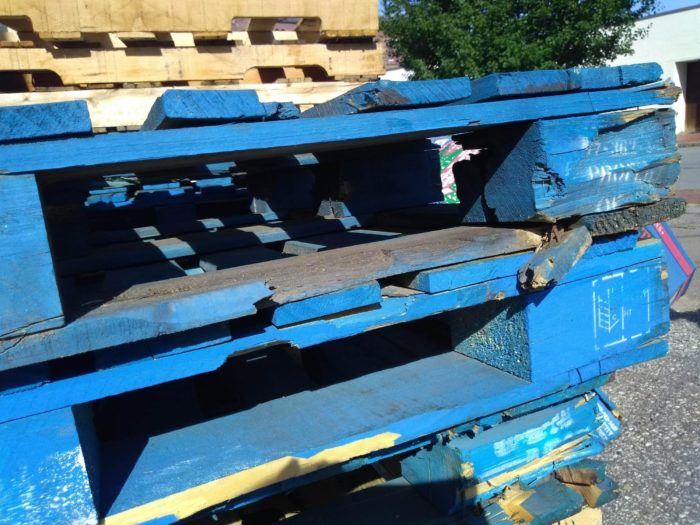 Contamination by wood or metal is one of the top causes of food recalls, and one way that wood and metal foreign objects get into food is via the wood shipping pallets used throughout the supply chain. As a natural, porous material, wood splinters and decomposes over time, allowing pieces of wood to detach from the pallet. Sharp pieces of wood debris can puncture packaging, allowing wood to get inside and contaminate the product. In mass production, just a single known instance of such contamination may require an entire batch of the product to be disposed of.
Contamination by wood or metal is one of the top causes of food recalls, and one way that wood and metal foreign objects get into food is via the wood shipping pallets used throughout the supply chain. As a natural, porous material, wood splinters and decomposes over time, allowing pieces of wood to detach from the pallet. Sharp pieces of wood debris can puncture packaging, allowing wood to get inside and contaminate the product. In mass production, just a single known instance of such contamination may require an entire batch of the product to be disposed of.
Pallet nails and screws are often responsible for product damage during transportation and handling.
Wood pallets may be a source of metal contamination as well as wood contamination. The screws or nails used to attach pallet boards to each other sometimes work loose over the course of a pallet’s lifespan and pierce and enter packaging. They may also create openings in product packaging that allow other foreign materials to enter. Nails or screws that don’t enter the package are often still responsible for product damage during transportation and handling. While this may not force a manufacturer to issue a recall, it frequently results in rejection of the load by the retailer, and, ultimately, loss of the load.
Preventing Foreign Material Contamination in Foods by Going Wood-Free
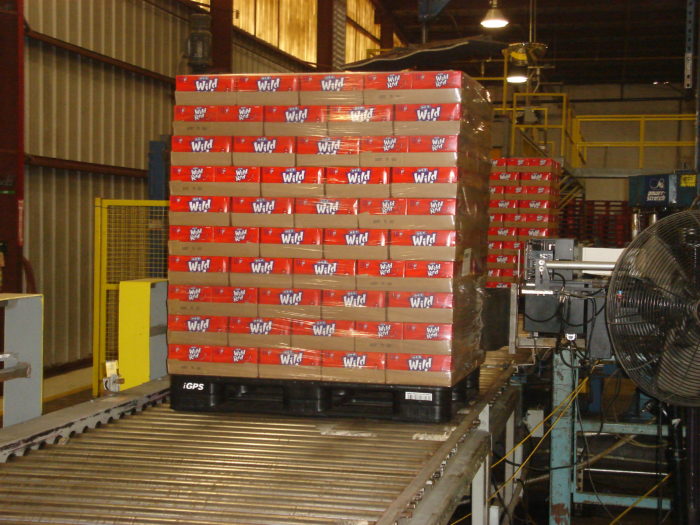 The best way to lower the risk of wood contamination and to simultaneously reduce logistics costs overall is to replace stringer or wood block pallets with more durable, hygienic pallets made from an alternate material. Plastic pallets are the ideal answer to the foreign object and bacterial contamination issues that wood pallets pose.
The best way to lower the risk of wood contamination and to simultaneously reduce logistics costs overall is to replace stringer or wood block pallets with more durable, hygienic pallets made from an alternate material. Plastic pallets are the ideal answer to the foreign object and bacterial contamination issues that wood pallets pose.
The lack of fasteners and durability of plastic as a material makes plastic pallets more resistant to wear and tear.
The unibody construction of high-quality plastic pallets eliminates the risk of nails and fasteners, as these pallets are not fastened together in pieces, but instead poured into a mold. The lack of fasteners and durability of plastic as a material also makes these pallets more resistant to wear and tear. High-quality plastic pallets typically bend before they break, nearly eliminating the chance that debris will contaminate your products.
Removing pieces of equipment from the food supply chain that pose a risk to your products–such as wood pallets–is perhaps the best way of preventing foreign material contamination in foods. However, some companies may be concerned about the cost of trading out wood for plastic. The solution is to work with a company offering plastic pallet pooling, so that shipping platforms can be rented rather than purchased outright, at a cost comparable to renting wood pallets. Anyone concerned about eliminating issues with contamination in mass food production should consider plastic pallets as a way to exponentially improve the hygiene and safety of their facilities.
iGPS plastic pallets replace unhygienic wood platforms and reduce your risk of wood particle contamination. To learn more about the benefits of plastic pallet pooling, contact us at 1-800-884-0225, email a specialist at switch@igps.net, or visit our contact page.
